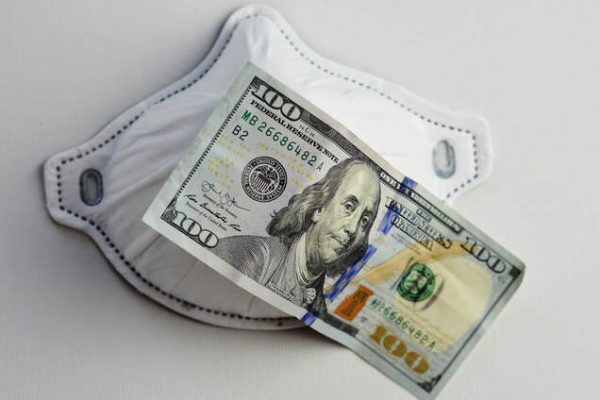Morning, maybe you’re laid off or know someone who is laid off due to COVID-19, or maybe you’re at home with pay but have a lot of extra time on your hands. Below, I’ve gathered a few tips to help financially and with peace of mind regarding the COVID-19 pandemic.
Take advantage of Work from Home Jobs:
Many companies hire people to work from the comfort of their own homes. Some of these companies have not been affected by COVID-19 such as customer service, content creation, and other jobs that can be done from home. If you have the skills and the time, consider taking advantage of a work from home job. If you’re off with pay; you’ll have extra income to devote toward that side hustle that you’ve been trying to get off of the ground.
If you have no income, you’ll be able to have money to continue coming in to take care of your essentials. You can work from home until you find the job you want or maybe working from home will become the job you want. Take a look at the link below to utilize reputable work from home job opportunities: Click here
Concerned about Keeping Your Mortgage Up? Request a Forbearance:
If you’re off without pay, you may be concerned about your mortgage payment or even your rent payment. You can have some peace knowing that FHA, FannieMae, and Freddiemac have instructed their mortgage services to delay receiving payment during the COVID-19 crisis for homeowners affected by the crisis. This means that if you’re a homeowner, who cannot pay your mortgage, you can simply call your mortgage servicer, and request a forbearance. A forbearance is a delayed payment or drastically reduced payment because of a reputable hardship. Its purpose is to give the homeowner more time to figure out their financial situation without having to worry about foreclosure or eviction.
Buildings with loans backed by FHA, FannieMae, and FreddieMac are also encouraging landlords not to evict renters who cannot pay at this time. They will give the landlord a forbearance if he is unable to collect the rent to pay the mortgage on the building insured by one of the three housing insurers. Talk with your landlord to see if this is an option for you. Let them know you are having trouble and see what agreements you all can come to. Also, see if your state has any rental assistance programs.
The norm for a forbearance due to COVID is 6 months. After 6 months the homeowner can be re-evaluated for an additional 6-month forbearance lasting up to 12 months. After the agreed-upon term; you will have to begin making payments again so use the forbearance time to look for employment to be gainfully employed by the end of the forbearance so you can work with your lender to become current again.
Note: Any delay of acceptance of payment is only temporary and meant to give you time to begin paying again rather it’s for rent or mortgage. Use this time wisely to earn and stack up income.
Consider a High-yield Savings Account
COVID-19 is a reminder that as the adage goes, stuff happens. One of the most important reasons to establish a saving plan is because we often have no idea when emergencies will happen. Cars break down, tires wear out, Water-heaters burst or furnaces stop working. Instances of emergency show us how faithful we’ve been with our money during times of harvest.
Have we put away for emergencies like we know we should do, or have we spent it just because we had it? I am a strong proponent of living underneath my means to save for the future and to accomplish things important to me. It could be something as simple as traveling twice a year. If that is a goal of mine, then saving intentionally will be a way to do it.
I encourage you to open up a high-yield online saving’s account to not only save but to earn interest on your savings. Since I switched to an online saving’s, I’ve been paid at least a few dollars per month for having savings in my account. Those few dollars add up. Pretty soon, it will be enough to pay for dinner on my vacation. I encourage you if you can put your stimulus funds into a savings account, and to commit to saving as close to 10% of your income as possible in a high-yield saving account. I recommend opening a saving that does not require a minimum balance and has no monthly payment. You can start by depositing your stimulus check into savings if your needs are already taken care of. Here is a list of high-yield saving’s accounts online: https://www.bankrate.com/banking/savings/rates/
Consider an Emergency Budget:
An emergency budget covers your bare essentials only such as food, shelter, and utilities. For a temporary season, you may have to cut the cable, gym, clothing, entertainment, and other subscriptions to re-purpose those funds toward the bare essentials.
If you had a high-paying job and now you’re underemployed or receiving less on unemployment, if you cut the additional expenses, at least you will have a roof over your head. Even if you’re on a forbearance plan with your mortgage because unemployment isn’t enough to cover your full mortgage payment, set aside a portion that you would have paid toward the mortgage in a separate savings account. For example, if your mortgage is normally $1,000 monthly, but with unemployment, you only have $500 a month left over after buying your bare essentials, deposit that $500/month into savings account as if your mortgage payment is $500.
This will help to keep you in a mindset of paying your mortgage/rent and it will give you leverage to negotiate with when your forbearance is over. You may be able to do a repayment plan, get a partial claim, which is like a loan to cover your arrears from your mortgage that you’d pay off after you pay your primary loan. Thus, the $500 you’ve saved monthly can be utilized for emergencies in the future and may not need to go toward the mortgage at all. For more in-depth knowledge regarding mortgages contact your local HUD-approved housing counseling agency at the link: Click here
For information about rental contact your local legal aid office.





